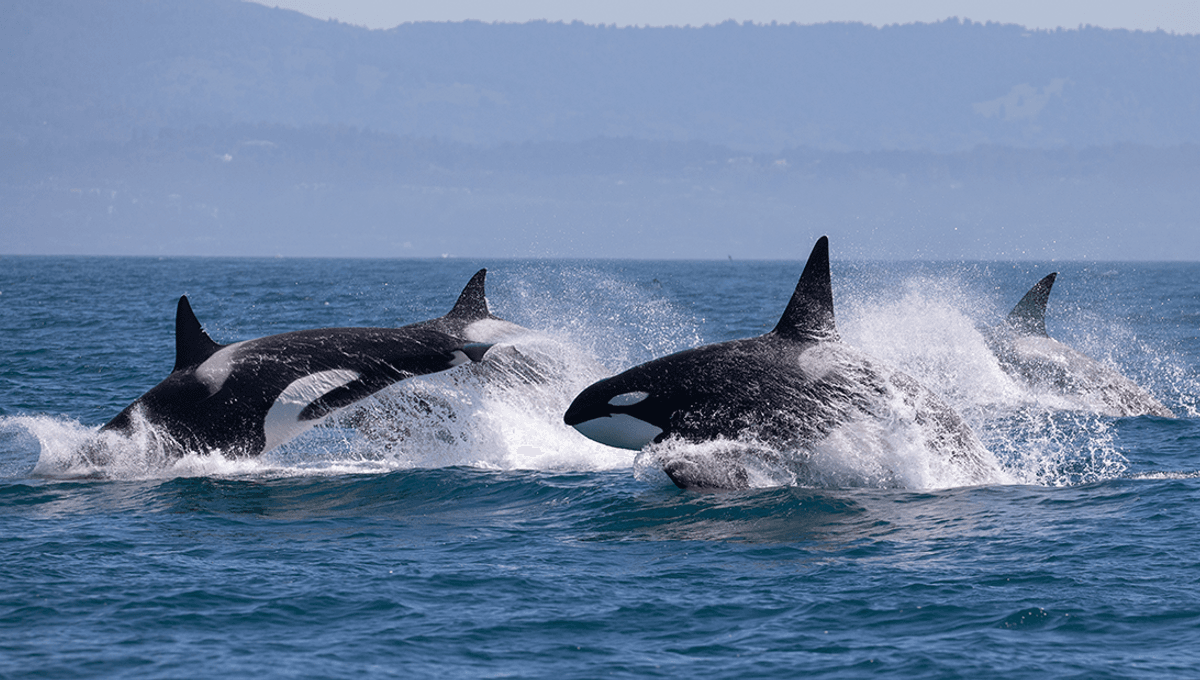
Scientists at the International Whaling Commission (IWC) have released a report on the recent rise in orcas ramming boats off the Iberian Peninsula.
Since 2020, a small group of orca off the Iberian Peninsula (known as Iberian killer whales) have interacted with vessels off the coast of Morocco, Spain, and Portugal at least 673 times – a lot more than in previous years. These interactions do not tend to end well for the boats, with the ramming behavior mainly targeted at medium-length sailboats typically smaller than 12 meters (29 feet) in length, focusing on spade rudders.
Though not all of these “attacks” resulted in damage, some vessels have been sunk by the orcas, including a Polish yacht in the Strait of Gibraltar in November 2023. Out of concern for the safety of vessels and the critically endangered whales, the Spanish and Portuguese governments ordered a report into the behavior, which was finally released on Friday. The report – the result of a workshop between biologists, people working in the marine industry, and government officials – explains the behavior and offers advice on how to deal with the interactions.
Though the behavior has prompted Internet talk of an orca communist uprising against the super-rich, the report stresses that the behavior is not even aggressive. In fact, the behavior is likely playful, and the result of having a bit more free time.
“In light of the available observations and reports on the interactions (Item 2.2.1) and the presentations here, the Workshop concluded that there was no evidence that the interactions between Iberian killer whales and vessels are aggressive on the whales’ part,” the team wrote in the report. “The behavior has more in common with fads seen elsewhere and seems associated with play or socializing, perhaps encouraged by the recent increased abundance and availability of prey—reducing the time needed for foraging—and by the reduction in negative interactions with fisheries.”
Orcas are known to show trends in new behaviors, adopting fads every now and then.
“Different populations often have distinct dietary specializations that are maintained by cultural transmission, and these ‘ecotypes’ typically have a variety of persistent behavioral traditions that are related to their divergent foraging,” the report explains. “Some populations may also develop unusual and temporary behavioral ‘fads’ and other idiosyncrasies that do not appear to serve any obvious adaptive purpose. Understanding the recent boat interactions by Iberian killer whales may benefit from an examination of such ephemeral traditions in other well-studied killer whale populations.”
In 1987, for obvious example, a group of orcas in the Puget Sound area of the northeast Pacific, one female orca from k-pod began carrying a dead salmon around on her nose. The behavior spread over the next 5-6 weeks, and by the end of it, orcas from her own and two other pods were wearing dead salmon hats. Then, all of a sudden, the fad was over. Bar a few times the following summer and a brief resurgence in 2008– latecomers, like humans just now deciding to wear Flares – the dead salmon hat trend has never been seen again.
The team also noted that males in another group of whales go through periods of “ritualized ramming or butting of heads” every now and then, with the behavior disappearing and reappearing, once ceasing for 20 years before beginning again.
The group suggests the behavior may have evolved from the less harmful behavior of “prop watching”, in which killer whales place their head near the propeller wash. Though no other group has taken this “next step” of damaging the rudders, the report suggests more time for playful behavior and more juveniles may have led to the trend.
“It was suggested that some level of playful interactions began earlier with young juveniles, although these initial interactions did not result in rudder damage,” the report reads. “This playful behavior may have escalated as the animals grew older.”
Similar escalation has been seen in a southern resident killer whale population of Washington, USA, in which the orcas play with porpoises in the harbor to the point of killing them, essentially playing with them to death.
Understanding the behavior is not aggressive will help with reducing potentially dangerous interactions. Attempts to deter the whales – while also being illegal due to the critically endangered status of the whales – are likely reinforcing the behavior, and increasing the risk of damage to vessels. While using sound – such as banging noises – may be necessary during particularly dangerous interactions, long-term the animals could associate the sound with the fun game of smash boat they are playing.
But knowing the behavior is playful, and likely linked to “prop watching”, the group suggests a few ways to decrease such interactions. Essentially, this could be achieved by making boats appear less fun for the whales. The group of whales has swum near small-scale fishing vessels in Morocco for decades without such dangerous interactions, possibly due to the rudders being uninteresting to them. Modifying rudders to make them abrasive or bumpy – though not damaging to whales – could make them similarly disinteresting. A trial of this will take place over the summer.
In the meantime, the group recommended that mariners do not make efforts to deter whales from the area, and move away from potentially dangerous interactions.
“Move away from the whales as quickly as possible, at least 2 to 3km [1.2 to 1.9 miles] from the area in which the whales were encountered, either toward the coast (in the Gulf of Cádiz and Strait of Gibraltar) or toward an area where rescue can be expedited,” the report adds. “Moving away is not guaranteed to end the interaction or prevent damage, but may reduce the latter’s likelihood. Mariners should alert authorities as soon as an encounter begins, which should help with response time for a rescue if needed.”
Source Link: The Puzzling Rise In Orca "Attacks" On Boats Has Been Explained By Whale Scientists